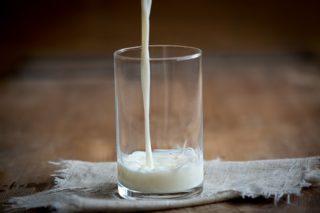
Nutritional value of milk reduced due to store lighting
Food in Canada
Products Packaging Dairy grocery lighting milk nutrition supermarket
LONDON, U.K. — LED lighting on supermarket shelves is reducing the nutritional value of milk and shortening its shelf life, according to a new report by researchers from Newcastle University.
The report, Milk: Light exposure and depletion of key nutrients, found that high-intensity lighting in grocery stores reduces essential nutrients found in milk, such as Vitamin A, Vitamin B2 (riboflavin) and Vitamin D. Most consumers are unaware that light can significantly impact milk quality, taste and nutrition.
After two hours of exposure to LED lighting – the type found in supermarkets – milk begins to lose vitamin A. After 16 hours, it has half the amount expected. The report also shows that riboflavin can decrease by 28 per cent after just 20 minutes of indoor light exposure. With around half of all milk remaining on display for at least eight hours, a significant proportion of milk on retail shelves is at risk of light damage if it does not have any form of light-protected packaging.
Dr. Catherine Birch, Newcastle University, School of Natural and Environmental Sciences, says, “While milk is just one component of a healthy diet, it is an important one, providing people with many essential nutrients including vitamins, protein and minerals. Many people do not realise that exposure of milk to indoor light can have a detrimental effect. The damaging effects of light can be influenced by the light intensity and time of exposure, so longer exposure to light causes milk to deteriorate faster.”
The report notes there are solutions to this issue including packaging which is designed to be light-protected as technology is available to design containers that reduce or prevent light damage. Laboratory testing on milk found that while the light-protected milk retained almost all Vitamin B2 and lost only 16 per cent of Vitamin A while non-light-protected milk lost all Vitamin B2 and 93 per cent of Vitamin A.
Read the full report here.
Print this page